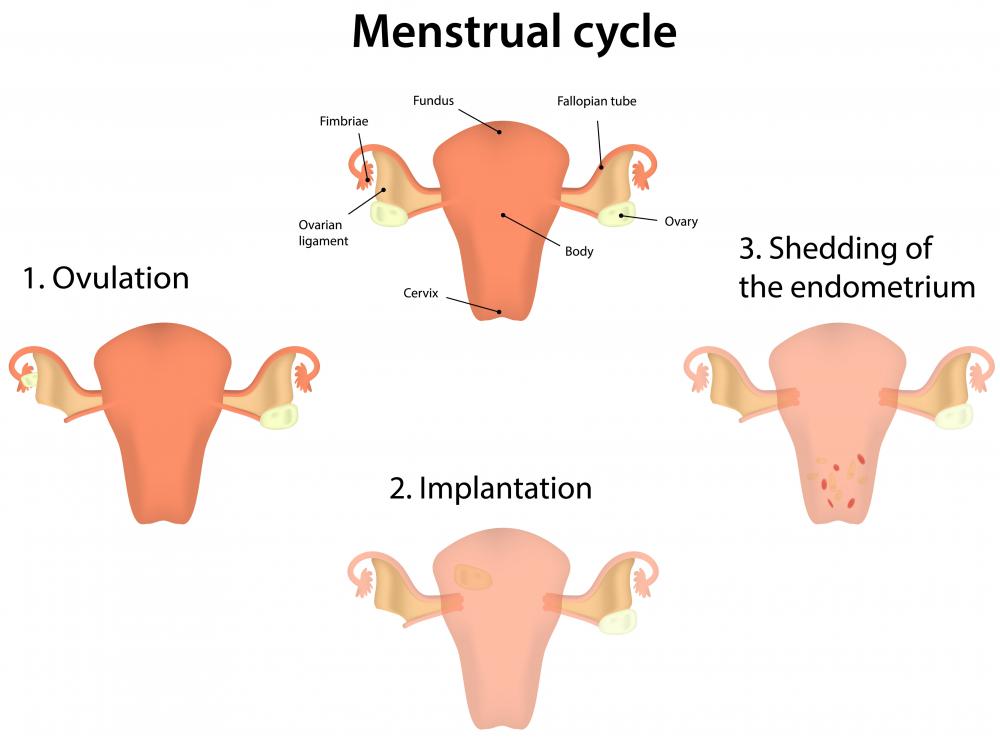At WiseGEEK, we're committed to delivering accurate, trustworthy information. Our expert-authored content is rigorously fact-checked and sourced from credible authorities. Discover how we uphold the highest standards in providing you with reliable knowledge.
What is the Connection Between Fertility and Cervical Mucus?
Many women who are trying to conceive pay close attention to their cervical mucus changes throughout their cycle. This is because there is a strong connection between fertility and cervical mucus, since without the mucus, sperm would typically not survive in the cervix. Therefore, the presence of a lot of somewhat stringy, stretchy mucus is considered a positive occurrence during ovulation. Not only does it help sperm get through the Fallopian tubes and survive for up to five days, but it also helps protect the uterus from bacteria that could enter and infect the area. Considering the relationship between fertility and cervical mucus, it is no wonder that many women seek to monitor and increase their mucus using various products.
A dry cervix during ovulation is not considered fertile, as this issue makes it nearly impossible for sperm to reach its destination. The most fertile fluid should occur in the days up to and during ovulation, usually in the middle of the menstrual cycle. It is known for being clear, stretchy, and abundant, making it easy for sperm to get to the Fallopian tubes, unlike tacky or dry cervical mucus. Additionally, fertile mucus is known for allowing sperm to live for up to five days in the female reproductive system, which provides more days on which to conceive. Thus, the connection between fertility and cervical mucus is such that fertility is improved by the mere presence of the right kind of mucus.

Fertile fluid only allows the healthy sperm to travel through it, which means that the unhealthy sperm cells tend to die before they reach the egg. Aside from this function, fertile mucus also protects the uterus from infection, since it is known for being antibacterial in nature. A healthy reproductive system can improve fertility and cervical mucus, which has a major influence on keeping the area free of infection.

Due to the relationship between fertility and cervical mucus, women who suffer from a lack of fertile fluid near ovulation strive to increase it any way possible. Drinking a lot of water, avoiding excess dairy, and taking over-the-counter products that promise to increase fluid are all ways to do so. In addition, the main ingredient in cough medicine, which is guaifenesin, is known for thinning out mucus membranes, which is why some women take it to increase their fertile mucus. Adding evening primrose oil to the diet before ovulation and flaxseed oil afterward are also considered natural ways to improve the quality of cervical mucus, possibly increasing the chances of conception.
AS FEATURED ON:
AS FEATURED ON:













Discussion Comments
I can't get pregnant and I know that having little to no cervical mucus is a huge factor. But there isn't much I can do about it because I have to take a medication that's drying up my cervical mucus as a side effect.
@donasmrs-- I felt the same way in the beginning, but if you keep observing your cervical mucus, you will start seeing patterns. Every woman's menstrual cycle is a little different. Some women ovulate every 28 days and others ovulate every 31 days. So you need to figure out your pattern.
If your cervical mucus is thick, white or cloudy and tacky, you're nowhere near ovulation. If it's clear, thin, stretchy or slippery, it's ovulation time. This is the best time to get pregnant. Once you're able to identify cervical mucus during ovulation, you can make an ovulation calendar to keep track of it. Start having sex a few days before ovulation to increase your chances of getting pregnant.
I'm trying to get pregnant and I've just started taking notice of cervical mucus. I want to try and figure out when I'm most fertile during the month, but it's difficult. I seem to have cervical mucus on a regular basis and it always seems to be the same. I have no idea how some women figure out their ovulation time this way.
Post your comments